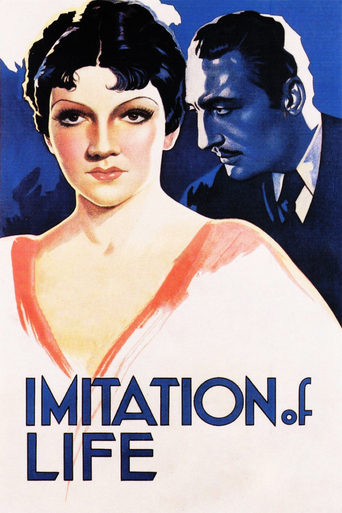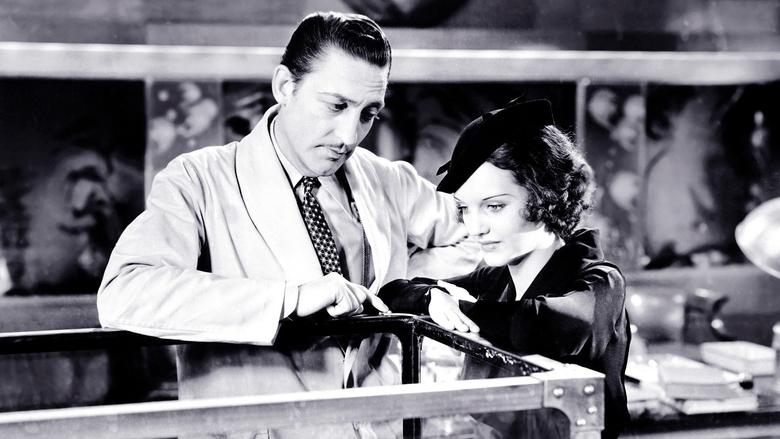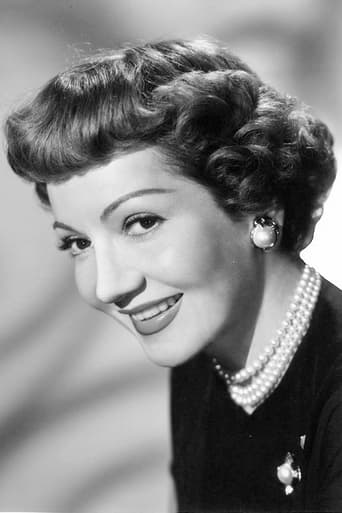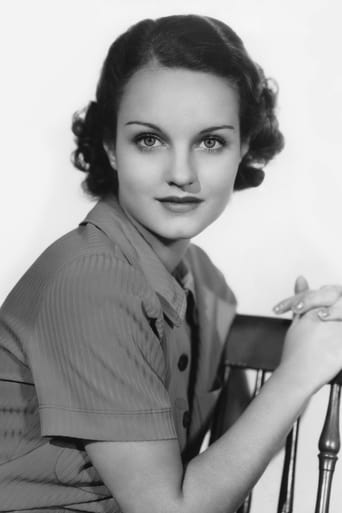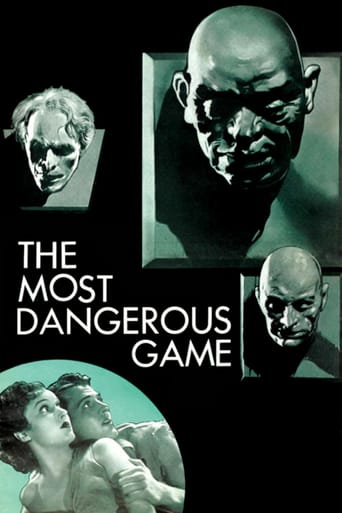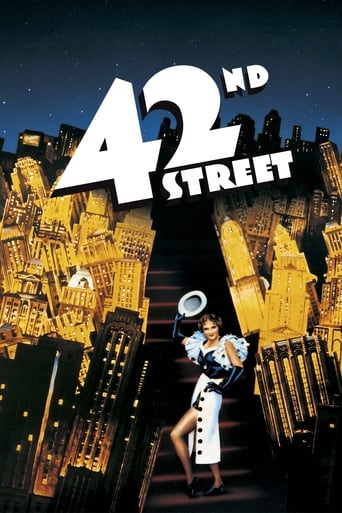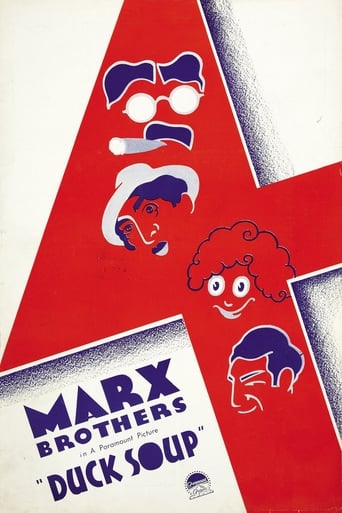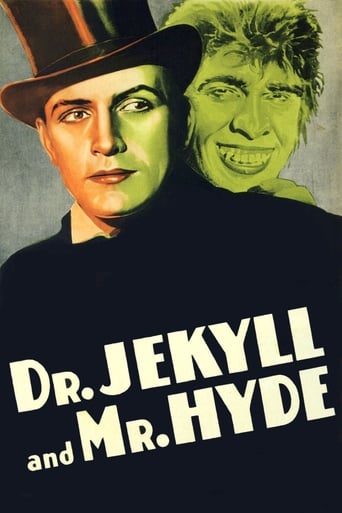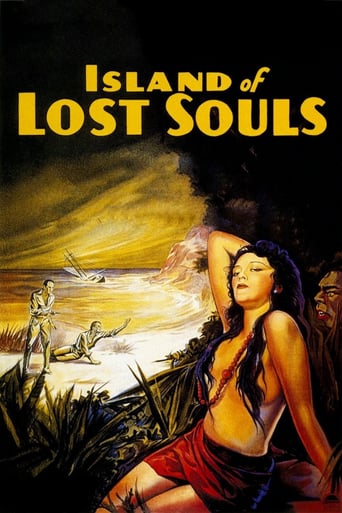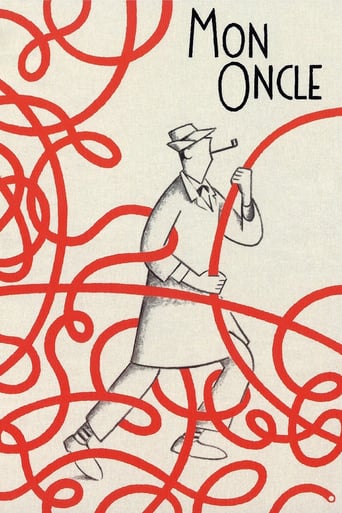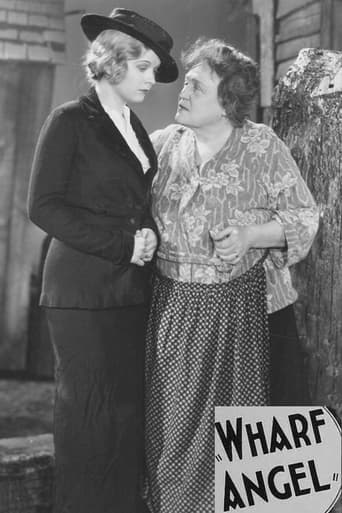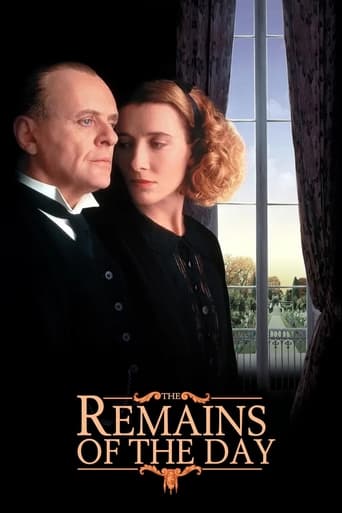Imitation of Life (1934)
A struggling widow and her daughter take in a black housekeeper and her fair-skinned daughter. The two women start a successful business but face familial, identity, and racial issues along the way.
Watch Trailer
Cast


Similar titles
Reviews
As much as we'd like to think that films exist in a vacuum, that is not the case. Still, despite progress, sometimes it is beneficial to (at least attempt to) evaluate art on its own merit and in its historical context. IMITATION OF LIFE is a film to which this can be applied. In terms of its approach to race and gender issues it was probably quite daring for its time. You have two single mothers, one black and one white, who start a business and climb up the social ladder. And their daughters, even though having a somewhat contentious relationship, were treated as equals. But, treating something academically isn't the only possible critical approach. By today's standards, I think the film still falls a bit short in terms of race and gender issues. Louise Beaver gives an awkward performance as a cheerfully subservient "mammy," even though that's the type of roles that were available to women of color back then. There is also an antiquated view on romantic relationships as marriage or "falling in love" is still seen as the pinnacle of a woman's life. All of this, and I haven't even really broached the style of film this is. I don't really mind melodrama as long as its executed well and has a compelling story. For what it's worth, IMITATION OF LIFE tends toward the positive side of this although it bites off a little more narrative complexity than it can fully chew, in my opinion. The primary plot threads involve Delilah's (Louise Beaver) daughter, Peola, who is mixed race and hates her "blackness," and an ichthyologist who Bea (Claudette Colbert) and her daughter both fall in love with. At least to me, there wasn't enough done to really integrate the various story elements in service of cohesiveness. It's like the story had a checklist of things it wanted to cover instead of letting things flow naturally from scene to scene. The outcome of the story was also kind of predictable. Still, the acting, which seems kind of stagey now, was decent, with Claudette Colbert doing the best out of the cast. She was a goddess who shone in every scene, and looked absolutely gorgeous in soft focus. Also, the toddler actress who played young Jessie, her daughter, was cute as a button. Overall, IMITATION OF LIFE is a product of its time. It might seemed dated today, but it's well produced, acted and directed for what it is.
This great film also deserves a Musical Review if that's all right with Tom Jones....Early one morning, Miss Bea labors bathing her daughter / Jessie the Baby must go off to day nursery / Bea was a widow / Peddling her syrup to purchase her daughter fine things.There at the door of the kitchen knocks a poor mother / Willing to work menial task to provide room and board / For her young daughter / Light like her father who took off to run his own way.Please, don't sigh, Delilah / Fry, fry, fry, Delilah / She would watch Jessie all day / Content to do much with slight pay / And cook up some pancakes to send Bea along on her way.Five years soon pass, and the bills are paid up at the restaurant / Rain on the boardwalk keeps customers staying away / Enter poor Elmer / For two stacks of pancakes, he'll gladly soon make it all pay.Meanwhile, Peola is passing for White in the third grade / Storm's coming down, and she'll soak without boots and her coat / Here comes Delilah / Claiming Peola, and giving her cover away.Cry, cry, cry, Peola / Why, why, why, Peola? / Your mother is not to blame / For there really is nothing to shame / She is your mother, but you hate her deeply the same.Ten more years pass, and Miss Bea throws an orchestra party / Money pours in, and they really receive their just fee / In walks Steven Archer / A promising suitor fantastically smitten with Bea.Peola is missing from school somewhere down in Virginia / Bea then tells Steven she must soon assist in the search / But there is Jessie / Who complicates matters and leaves Steven deep in the lurch.My, my, my, the turmoil! / Why, why, why, the turmoil? / Heartbreak, frustration and strife / Yield a true "Imitiation of Life" / Forgive them, Delilah; they just couldn't take anymore. / Forgive them, Miss Beatrice; they just couldn't take anymore.
When Imitation Of Life came out in 1934, Fannie Hurst was at the height of her literary reputation having had her two best works this one and Back Street, come out back to back as both novels and movies. Both stories are about a women's sacrifice.One day before World War I, Louise Beavers comes looking for domestic work and gets the wrong address and comes knocking on Claudette Colbert's door. Colbert is a recent widow with a child and Louise has a child the same age. Colbert can't afford any salary, but Louise is willing to work cheap, just for room and board for herself and her child. This starts an unusual partnership both personal and business because Claudette's late husband was a seller of a cooking syrup and Louise makes a melt in your mouth type of pancake. When passing stranger Ned Sparks tells her one day to package the flour, this makes both Colbert and Beavers millionaires overnight. Beavers can't see it however and passes up her own household to stay with Claudette.A lot of people today look at Beavers's character and say this is a racial stereotype that Hurst was perpetrating. Taking the racial component out of it, I've seen several people who are just like Beavers in their own way. Clark Gable had a father who could have lived quite well off his son, but couldn't deal with the Hollywood lifestyle and actually told his son they ought to resume their previous occupations as oil roughnecks. Stan Musial when he was making big money as a baseball star had a mother who took in washing back in the little steel mill town of Donora, Pennsylvania where he came from and not because he wasn't willing to provide.And I had an uncle who worked hard at Kodak and also built up a milk delivery business of his own and at an age where he could have just relaxed and taken it easy, he was out working at close to 80 at a tool and die plant. There are folks out there who shy away from the outward trappings of success like Beavers. And there are those stubbornly over-committed to a work ethic when they don't have to be.Both Colbert and Beavers are just moms with problem daughters on their hands. Daughter Rochelle Hudson is crushing out on Warren William who has his eyes on Colbert. But Beavers has bigger problems.Remember these girls were literally raised together with their mothers in business. Fredi Washington sees the white world, she's light skinned enough to pass, she wants what's over in that world. But her denial of heritage hurts Beavers more than my words can describe. But Hurst's words in the novel and the screenplay betray a rare understanding of racism during her time. Imitation of Life got three Oscar nominations including Best Picture. It's a dated film, but that fact alone makes it worth watching as a glimpse of the racial picture in America in the Thirties.
I've seen the remake of this story, of which I'm a big fan, countless times, and I finally saw the original version over the weekend. Overall, the remake to is more believable and much more entertaining. The story is about two sets of moms and daughters; in the original they are Delilah and Peola (the black mom and daughter) and Bea and Jessie (white mom and daughter); in the remake they are renamed Annie and Sarah Jane (black) and Lora and Suzy (white). As a black man, the original left me angered in its depiction of black people; as an actor, it left me bored due to the painfully slow pace, bad acting, unnecessary dialogue, pointless camera shots and ludicrousness. In the original, Delilah (black mom) is not a real person. Yes, blacks in the 1930's had to be subservient to whites, but Delilah takes her servant status too far. She forgoes financial independence in favor of continuing to be a maid and mammy to her white employers! In reality, blacks of the 30's would have jumped at the option of financial independence and stability over a lifetime of voluntary servitude. As other comments have stated, the original shows the black mom (Delilah) speaking in broken English, which portrays her as charmingly ignorant. Thankfully in the remake, the black mom (Annie) is smarter and more dignified as she uses mostly correct grammar and different tactics to get Sarah Jane (her daughter) to embrace her racial identity; in the original Delilah kept using the same weak excuse to force her daughter Peola to embrace her identity.In the original version, the both daughters are poorly fleshed out. All we really know about them is that Peola doesn't want to be black, and that Jessie is on vacation from school and gets a crush on mom's boyfriend (who says he's 37, but is clearly at least 50). In the remake, we get to see beneath the surface of the daughters; we learn that Suzy feels unloved by her mother, and that Sarah Jane is willing to endure lies and heartbreak in order to have more opportunities in life. The remake also depicts the daughters as friends, while in the original, Jessie (white daughter) seems to care less about Peola's (black daughter's) situation or feelings.The original's only advantage over the remake is the friendship between the mothers; it shows a greater arc of the women's relationship over time. To the original's credit, Bea is considerate of Delilah when she offers Delilah a small cut of the business profits; very few white women would have acknowledged a black woman with a business deal in the 30's. Bea and Delilah frankly and intimately discuss very personal issues, considering the era and their racial difference. Bea also repeatedly takes a sincere and active interest in helping Delilah through her difficulties with her daughter. In the remake, the mothers' relationship mostly remains on the maid/boss level, with Lora (white mom) showing occasional interest in Annie's (black mom) plight when it's convenient for Lora.The remake has a higher entertainment value because it is in color, has a heightened sense of melodrama (gotta love Lana Turner's over the top acting), and is generally more glamorous (prettier actors, nicer costumes, the tried-and-true story of a struggling actress who makes it big, and the very elegant opening credits).

